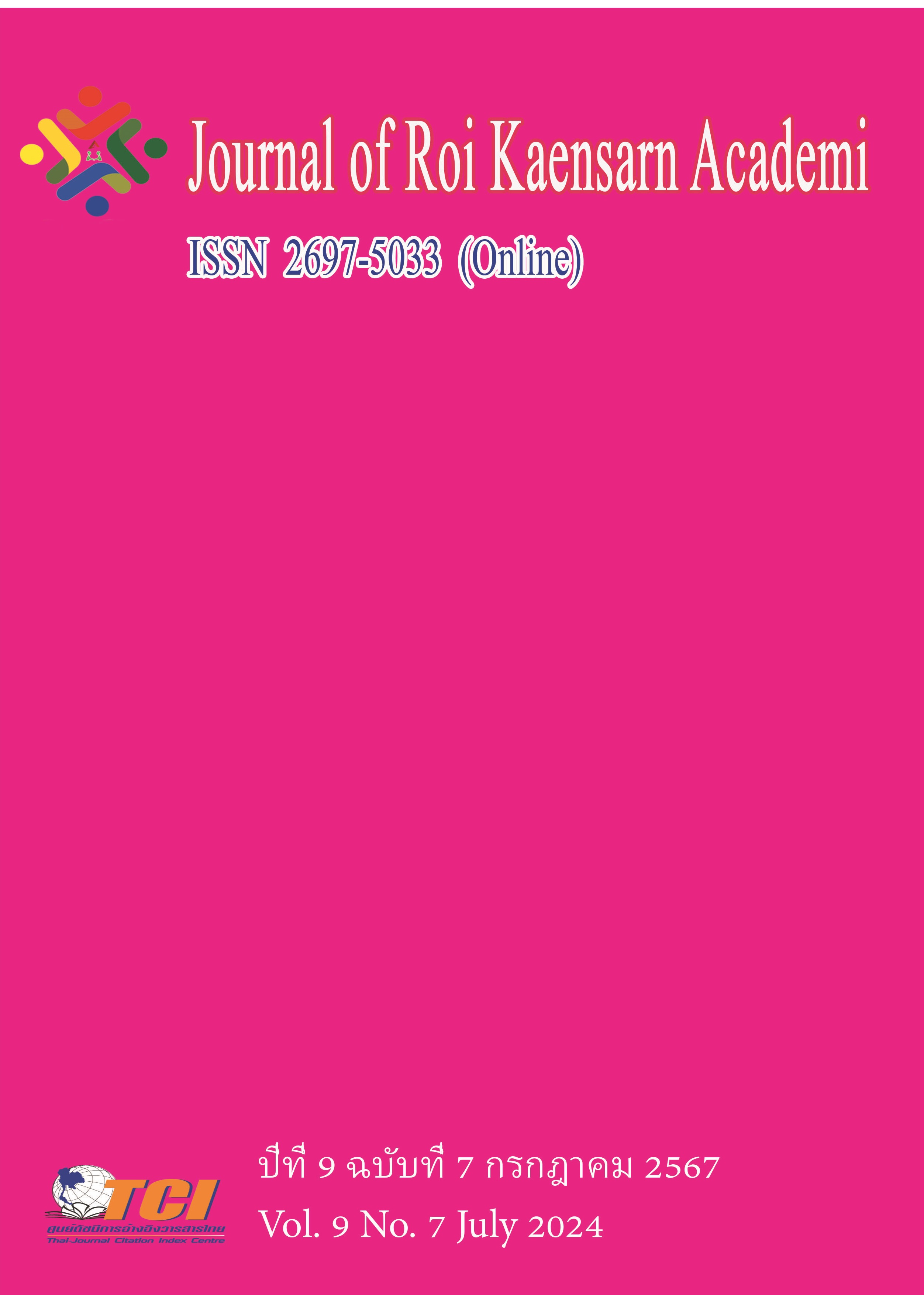Analysis on The Current Situation and Influencing Factors of Career Adaptability of Applied Undergraduates
Main Article Content
บทคัดย่อ
Research objectives:Investigate the current status of college students' career adaptability and its influencing factors, help college students establish a positive attitude, enable them to calmly cope with career development, increase their attention to career, and improve college students' cognitive level of themselves and the environment in order to control Career development. Research tools:This study used the Variable Career Orientation Scale and the Career Adaptability Scale for investigation. Data analysis:SPSS 27.0 statistical software for statistical analysis of the data. The measurement data used "mean ± standard deviation", and the component comparison used the independent sample T test and ANOVA single factor.Analysis of variance, explored using Pearson correlation analysis. Research results: The study found that the overall situation of college students' career adaptability is good, and college students of different grades have significant differences in career adaptability; variable career orientation is positively correlated with career adaptability.
Article Details
เอกสารอ้างอิง
Briscoe, J. P., & Hall, D. T. (2006). The interplay of boundaryless and protean careers: Combinations and implications. Journal of Vocational Behavior. 69 (1), 4-18. https://doi.org/10.1016/j.jvb.2005.09.002
Deng, B., Deng, W., & Li, J. (2008). An empirical study on the career adaptability of college students and related countermeasures. Journal of Chongqing University: Social Science Edition. 4, 59-63. https://doi.org/10.3969/j.issn.1008-5831.2008.04.012
Ebberwein, C. A., Krieshok, T. S., Ulven, J. C., & Prosser, E. C. (2004). Voices in transition: Lessons on career adaptability. The Career Development Quarterly. 52 (4), 292-308. https://doi.org/10.1002/j.2161-0045.2004.tb00947.x
Guan, Y., Deng, H., Sun, J., Wang, Y., Cai, Z., Ye, L., Fu, R., Wang, Y., Zhang, S., & Li, Y. (2013). Career adaptability, job search self-efficacy and outcomes: A three-wave investigation among Chinese university graduates. Journal of Vocational Behavior. 83 (3), 561-570. https://doi.org/10.1016/j.jvb.2013.09.003
Guan, Y., Guo, Y., Bond, M. H., Cai, Z., Zhou, X., Xu, J., Zhu, F., Wang, Z., Fu, R., Liu, S., & Wang, Y. (2014). New job market entrants' future work self, career adaptability and job search outcomes: Examining mediating and moderating models. Journal of Vocational Behavior. 85(1), 136-145. https://doi.org/10.1016/j.jvb.2014.05.003
Hou, Z. J., Leung, S. A., Li, X., Li, X., & Xu, H. (2012). Career adapt-abilities scale—China form: Construction and initial validation. Journal of Vocational Behavior. 80 (3), 686-691. https://doi.org/10.1016/j.jvb.2012.01.006
Jia, X. (2005). On the current situation of career adaptability development and employment ability cultivation of college students. Journal of Tianjin Normal University: Social Science Edition. 3, 68-73. https://doi.org/10.3969/j.issn.1671-1106.2005.03.014
Jiang, R. (2003). A study on factors related to the career development of students in practical skills classes in Taipei City.
Koen, J., Klehe, U. C., Van Vianen, A. E., Zikic, J., & Nauta, A. (2010). Job-search strategies and reemployment quality: The impact of career adaptability. Journal of Vocational Behavior. 77 (1), 126-139. https://doi.org/10.1016/j.jvb.2010.02.004
Johnston, C. S., Luciano, E. C., Maggiori, C., Ruch, W., & Rossier, J. (2013). Validation of the German version of the career adapt-abilities scale and its relation to orientations to happiness and work stress. Journal of Vocational Behavior. 83 (3), 295-304. https://doi.org/10.1016/j.jvb.2013.06.002
Savickas, M. L. (2005). Teaching career construction and the career style interview. In M. L. Savickas & W. B. Walsh (Eds.), Career Development and Counseling: Putting Theory and Research to Work (pp. 61-80). Wiley.
Savickas, M. L., & Porfeli, E. J. (2012). Career adapt-abilities scale: Construction, reliability, and measurement equivalence across 13 countries. Journal of Vocational Behavior. 80 (3), 661-673. https://doi.org/10.1016/j.jvb.2012.01.011
Super, D. E., & Knasel, E. G. (1981). Career development in adulthood: Some theoretical problems and a possible solution. British Journal of Guidance & Counselling. 9 (2), 194-201. https://doi.org/10.1080/03069888100760211
Supeli, A., & Creed, P. (2015). The longitudinal relationship between protean career orientation and job satisfaction, organizational commitment, and intention-to-quit. Journal of Career Development. 43 (1), 66-80. https://doi.org/10.1177/0894845 315581686
Tolentino, L. R., Garcia, P. R. J. M., Restubog, S. L. D., Bordia, P., & Tang, R. L. (2013). Validation of the career adapt-abilities scale and an examination of a model of career adaptation in the Philippine context. Journal of Vocational Behavior. 83 (3), 410-418. https://doi.org/10.1016/j.jvb.2013.06.013

